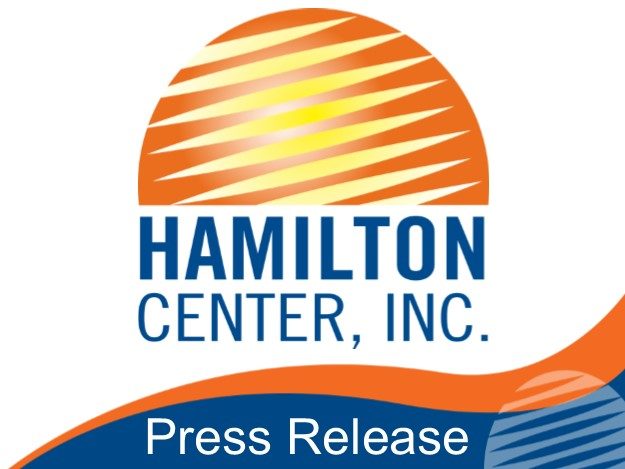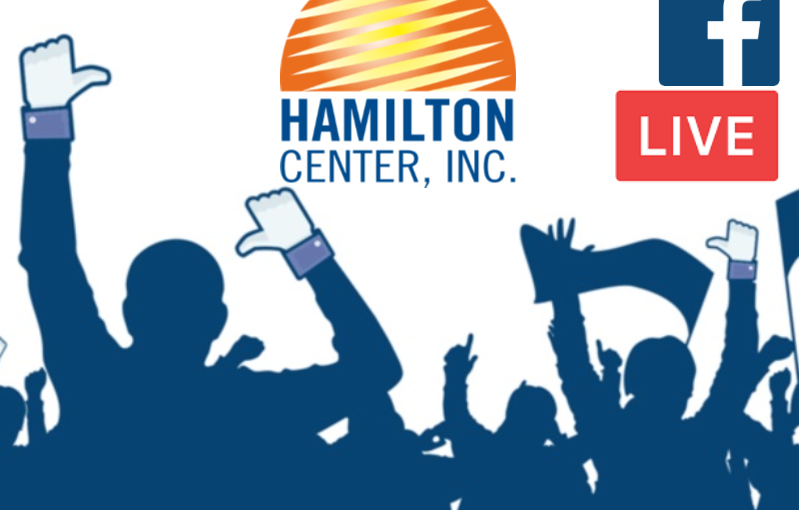
Focuses on coordination of care for those with mental illness.
Hamilton Center, Inc. was established as a community mental health center in 1971, and as such has been providing quality behavioral health, wellness and human development services to central and west central Indiana. The organization’s vision is to advance excellence in behavioral health services through compassion, customer responsiveness, innovation, and flexibility.
“Both our mission and our vision have always been guiding principles for our organization but took on a new light this past year, both in response to the needs of our consumers and to the needs of our community in the wake of COVID-19,” said Melvin L Burks, CEO of Hamilton Center, Inc. “Mental health has been placed at the forefront of the social conversation around wellness, especially since the beginning of social distancing guidelines and practices.”
In fiscal year 2020 the organization served over 12,300 individuals across its traditional 10-county service area, which expanded to 11 counties in May 2020 with the addition of Knox County’s WIN Recovery, a state certified opioid treatment program. Of those individuals served by the organization, 42 percent live in Vigo County and 79 percent of those served had incomes of less than $8,000 per year. “Hamilton Center serves some of the most vulnerable Hoosiers”, said Burks. “We are grateful to our community partners, grantors and others for their support.” He said.
In addition, last fiscal year, the organization delivered 264,548 outpatient visits, 5,246 inpatient days and 13,679 residential days.
Coordination of Care
In moments of crisis, no one should have to navigate the complex web of the healthcare system alone. To assist the community, individuals, and families with these issues Hamilton Center has focused efforts around coordination of care, specifically for those struggling with mental illness.
“This is a powerful goal to aspire towards, however, the resources and coordination required to make this possible for those in crisis can present a seemingly insurmountable challenge for many,” said Burks.
In response to barriers to treatment of mental and physical health conditions, the organization has made efforts to not only increase access to services but to also establish coordination of comprehensive holistic care for individuals and families.
In June 2020, the organization was awarded a two year $3.75 million grant through the Certified Community Behavioral Health Center (CCBHC) Expansion Grant from the Substance Abuse and Mental Health Services Administration (SAMHSA). The grant is a part of the center’s broader strategic plan to acquire the CCBHC designation and has three primary components.
As one component of the grant, Hamilton Center will establish a 24-hr mobile crisis unit. This service will work alongside local authorities to deliver crisis services to those most in need as well as assist them in accessing services during their most vulnerable times. One of the goals of the program is to relieve some of the mental health crisis demands on local authorities and ERs. “We want to connect individuals to the most appropriate services to maximize care and recovery,” said Mark Collin, Chief Clinical Officer. “In the case of a mental health crisis, crisis management and behavioral health services are the most appropriate services.”
Last month, the mobile crisis unit began delivering services in Terre Haute, and will continue to scale gradually, with the ultimate goal of reaching an additional 475 children and adults in the next two years.
Another component is the implementation of the Assertive Community Treatment (ACT) model. This model of treatment, an evidence-based approach, will establish an intensive team of health professionals with a primary focus on collaboratively assisting people with serious mental illnesses in becoming independent and integrating into the community.
Additionally, the grant will enhance Hamilton Center ‘s capacity to offer mental health and primary health screenings for both children and adults. Through this integrated system of care, individuals can begin to address their issues in a holistic way, promoting higher rates of recovery and, most importantly, wellness.
“We are committed to excellence in care coordination, and we welcome additional conversations with leaders and partners committed to helping our team continue to improve along the way,” said Burks.
Integrating primary and behavioral health
Grace Clinic Health Professional now open
Removing barriers to treatment is another key component in addressing the health needs of a community. Grace Clinic Health Professional, the organization’s primary health care clinic, is now serving consumers at two locations – one at Vigo County located at 622 8th Avenue in Terre Haute, IN and the other at 239 Hillsdale Avenue, Suite A in Greencastle, IN. In August, the clinic was designated as a Federally Quality Health Center (FQHC) Look-alike by the Human Resources & Services Administration (HRSA). This designation allows the organization opportunities to develop and implement services required to meet the full qualifications for designation as a Federally Qualified Health Center. Together FQHCs and FQHC Look-alikes work to ensure health care for the Nation’s underserved communities and vulnerable populations through service provision to all. No one is turned away regardless of ability to pay.
Hamilton Center for years had recognized that very often those who were seeking intensive mental health or substance abuse services lacked primary care. This was due to lack of financial resources, access, transportation, or their mental illness being an obstacle for seeking other health services. At times these individuals would end up in less than appropriate levels of care such as emergency rooms.
Grace Clinic addresses these issues by providing holistic patient care, to men, women, and children who are underserved, underinsured, or without the ability to pay for quality healthcare. Experts agree that the body and mind are connected, so it is not uncommon for one’s mental health to effect other parts of the body and vice versa. Grace Clinic works to improve the overall health of patients by ensuring preventative care and early detection and management of chronic health diseases. In addition to primary care, the clinic also offers some behavioral health services and has the ability to refer to Hamilton Center for more intensive mental health and substance abuse services.
In fiscal year 2020, Hamilton Center/Grace Clinic provided 3,489 primary care visits.
Telehealth Services
Another component of the organization’s strategic plan is a continued expansion of telehealth services. Telehealth services is the use of video conferencing, electronic monitoring, and teleconferencing to deliver health services. Telehealth has exploded in the health care field. In fact, in 2017, 76 percent of all hospitals had established a telehealth system.
Limited access to health care has been a primary focus of both federal and state governments. Currently, Hamilton Center serves ten counties with behavioral health services and nine of those are considered mental health professional shortage areas (MHPSA) by HRSA. Telehealth services can be a valuable tool in those areas by perhaps having a therapist from an urban areas deliver services by telehealth to a consumer in rural Indiana where therapists are scarce.
And then came the coronavirus and social distancing guidelines which took telehealth services at Hamilton Center to new heights. From March, 2020 to the present, it is the preferred means of delivering outpatient behavioral health and substance abuse services. The organization has the majority of staff working from home who connect with clients electronically each day.
“Telehealth has always been a valuable tool utilized by our organization, specifically in addressing the mental health needs of rural communities,” said Burks. “When COVID-19 hit, and social distancing became the way of life, our entire organization adapted to those demands quickly and efficiency.”
In fiscal year 2020, 24% of services delivered at Hamilton Center were by telehealth.
Connecting to the Community
Diversity Walk on Wheels and We Live events continue
On Saturday, August 22 the Diversity Walk-On-Wheels, pulled out of Fairbanks Park with over 120 cars parading across town to Indiana State’s Memorial Football Stadium. While at the stadium, Burks along with other dignitaries, delivered a presentation on diversity, inclusion and equity in the community, while also addressing the many Social Justice movements sweeping the country.
“The Diversity Walk was created to bring a diverse group of people together to break down barriers, build relationships and show what is possible when a community is welcoming to all,” said Burks. “Our goal was to offer individuals the opportunity to show their support for social justice in a positive and safe way.”
On Friday August 21, Hamilton Center and event sponsors, First Farmers Bank & Trust and Children’s Bureau, Inc., worked with community partners to deliver over $6,000 in schools supplies to both Benjamin Franklin and Deming Elementary Schools. Over 700 individual bags of supplies were delivered to the school for them to distribute to their student body. In addition, each school received $500 in additional support for the school year.
“On behalf of our entire organization, our board of directors and myself – from the bottom of my heart – I thank everyone for their efforts in making these events happen,” said Burks. “I consider the collaboration it took to execute these events in such complex circumstances, to be a testament to our commitment to each other.”
* * *
Hamilton Center, Inc. is a regional behavioral health system in Central and West Central Indiana headquartered in Terre Haute Services include specialized programs for expectant mothers, infants, and people with drug and alcohol problems. Counseling services are provided for people who may be struggling with stress, life changes, or relationship issues as well as more serious problems such as depression, anxiety disorders, and serious mental illnesses.








